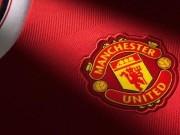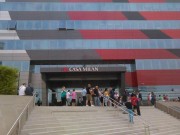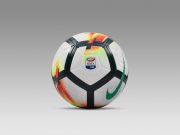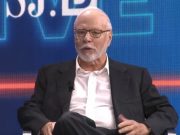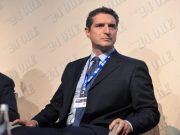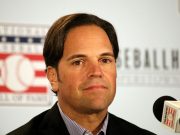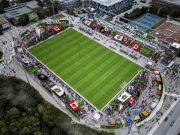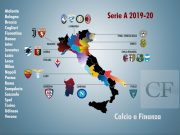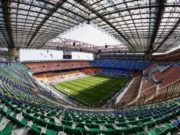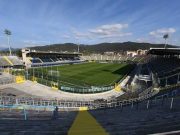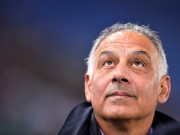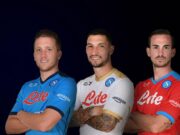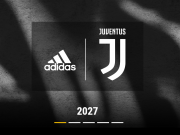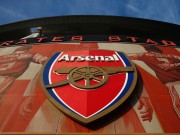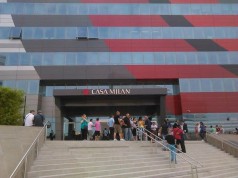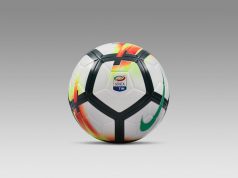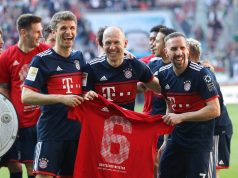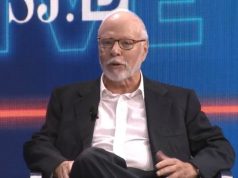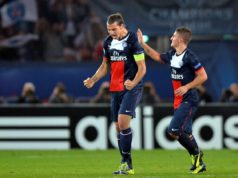Just like in economics, the cycle of one factor of production begins with the costs incurred related to investment operations (buying) and ends with the achievement of revenue from divestment transactions (sales), in soccer – and in sport in general – the sport cycle begins with the investiture of a coach (and his staff) and with the purchase of players functional to the project in order to achieve results on the field.
Also in recent years, in light of the new rules dictated by the financial fair play (FFP), it is becoming increasingly important for clubs to plan these cycles in order to minimize the economic efforts, not to waste resources on unnecessary expenses and thus maximize the end result.
What is the average cycle of a world-class coach? Which coaches give more stability and continuity to the club? Who are the coaches that win more trophies per cycle?
The table below correlates the number of teams coached in the period 2001/2002 – 2015/2016 (Mourinho’s dual experience at Chelsea, for instance, is counted as “two” teams due to two different technical projects), the number of actual years spent on the bench (netting the time between one job and the other) and the average period of the job (ratio of actual years and teams coached).
As can be noted, the coaches who worked the most in the last 15 years are Wenger, Pellegrini and Klopp with actually more than 14 seasons spent in the field, followed by Ancelotti (replacing Terim in the 2001/2002 season after a few months and a gap year in the past season) and Mourinho (who has remained “dry” only after the two exemptions from Chelsea). Much weaker statistics for the three emerging (and winning) coaches such as Guardiola, Simeone and Luis Enrique who in 2001/2002 – the beginning year of the analysis – were still players, respectively, of Brescia, Lazio and Barcelona.
Palme d’Or for the job longevity to Arsene Wenger, the real totem of Arsenal (now in his 20th year on the bench). Second place went to Sir Alex Ferguson with 12 years at Manchester United out of 15 seasons under analysis, but we are certain that if we had considered the ten seasons prior to 2001 or Sir Alex had not retired at the end of the 2012/2013 season, the scepter would be his. Third place instead for Jurgen Klopp: the German, in fact, before the recent experience with the reds of Liverpool, he was the coach of Mainz for six and a half seasons, and for seven seasons of Borussia Dortmund, bringing the team back to success after poor years.
Allegri, Simeone and, in part, Manuel Pellegrini deserve a separate discussion. The current coach of Juventus, after stopping the activity as a footballer, started from the “bottom”, making his way up through coaching Aglianese, Spal, Grosseto (twice) and Cagliari: essentially changing so many jerseys was also a key step in his career advancement process. For Simeone and partly for Pellegrini instead, the explanation of why they coached so many teams comes also from the South American origins of the two coaches. In fact, statistics prove that in Argentina the teams tend to change coach more often and the formula of the tournament divided into open-closure definitely facilitates this phenomenon. It shouldn’t be scary then a 1.12 average length on the bench for “cholo” (Simeone’s nickname) or 1.42 for coach Allegri: in fact for the first part of the period analyzed they were still players and it is therefore normal an initial period characterized by high instability. Guardiola, on the other hand, being one of a kind, is still – to this day – the only coach to have won a triplete (three trophies – Championship, King’s Cup, and Champions League) in his second year as manager of a first team.

Jose’ Mourinho is at the top of the list according to trophies won with 23 trophies, a sign that the investment made in the summer by Manchester United was targeted and aimed to win something important, by adding to the organic the most successful coach of the last 15 years. A similar scenario can be seen for Manchester City by bringing Pep Guardiola (21) on the bench, the second most successful coach of the last three decades. Finally, podium for Sir Alex Ferguson that in the 12 years with United was able to conquer 17 trophies (one more than Carlo Ancelotti, stable at 16). These four coaches, plus Luis Enrique (who won five out of eight titles in one season) are the only coaches able to guarantee more than one trophy per season to the teams they train (excluding downtimes). Mourinho even more than 1,5 (approximately 1.67 trophies per season) and more than 2.5 for Guardiola: the Catalan doesn’t close a season with less than 2.63 trophies won. Mancini, Benitez and Simeone give joy to their fans about once a year, Wenger takes home at least one trophy (and it is not easily given at the large competition) for 75% of the seasons, while Allegri in two out of three seasons (but given the recent numbers since when he started coaching Juventus, this figure is expected to rise sharply). A little more detached are Van Gaal, Klopp and Pellegrini; the Dutch coach is excused because he coached the national team (and therefore has had less opportunity to increase his tally, though embellished with a 3rd place in the World Cup in Brazil 2014). For Klopp and Pellegrini there is also the high competition factor, as well as bad luck: the German has coached Borussia Dortmund in the golden years of Bayern Munich and lost a Champions League final against the Bavarian (more recently also in Europe League with Liverpool), while the Chilean has been training for a long time teams such as Villarreal and Malaga bringing them close to important trophies, but never actually achieving anything concrete.

It is one thing to win trophies, another thing though is the prestige of them. Ancelotti, the king of trophies, is the only one to have won three Champions League titles (Milan 2003 and 2007 and Real Madrid in 2014) over the past 15 years. Mourinho (Porto in 2004 and Inter in 2010) and Guardiola (Barcelona 2009 and 2011) are behind him, both still at two. The Portuguese is the best at the championship titles won (eight), followed by Guardiola (six) and Ferguson (six). Benitez instead, has won more Europa League with two trophies (actually Emery has won three with Sevilla but he is off the charts) and is also the only one – along with Mourinho – to have won both continental competitions.



